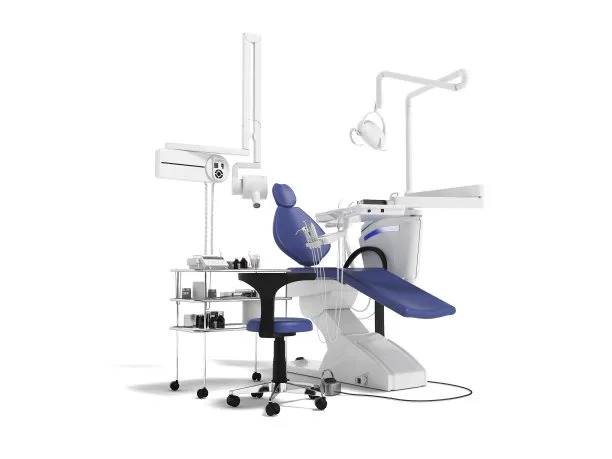Summary: Dental implants can significantly improve oral health and restore functionality, but the success of the procedure often hinges on several crucial pre-surgery guidelines. This article outlines four essential aspects that individuals should consider before undergoing a dental implant procedure. Each section will provide insights into the importance of comprehensive dental evaluations, the impact of lifestyle and medical history, the role of selecting a qualified implant specialist, and the necessity of adhering to post-operative care guidelines. By addressing these key areas, patients can enhance their chances of optimal success and recovery.
1. Comprehensive Dental Evaluations Are Essential

Before undergoing a dental implant procedure, a thorough dental evaluation is necessary to determine the suitability of the patient for the procedure. This evaluation typically includes X-rays and 3D imaging to assess the jawbones condition and the placement of nearby teeth. The dentist will evaluate whether there is enough bone density to support the implant and consider options for bone grafting if needed.
A complete evaluation also involves examining the patient’s oral hygiene practices, as good oral health is crucial for the success of dental implants. Patients with gum diseases or other infections might need to address these issues before proceeding with implants. This proactive approach helps in identifying potential complications that could arise during or after the procedure.
Additionally, health history plays a significant role in determining candidacy for dental implants. Patients should disclose all medical conditions and medications to ensure their dental team can make well-informed decisions regarding the procedure.
2. Understanding the Impact of Lifestyle Choices
Lifestyle choices significantly affect the success of dental implants. Smoking, for example, is known to compromise the healing process, leading to complications. Smokers are at a higher risk of implant failure due to the reduced blood flow to the gums and decreased capacity for healing. Therefore, individuals considering dental implants are often advised to quit smoking at least a few weeks before the procedure.
Nutrition also plays an essential role in recovery and overall oral health. A well-balanced diet rich in vitamins and minerals can promote faster healing and better outcomes. Patients should focus on incorporating nutrient-dense foods into their diets, particularly those high in calcium and vitamin D, which are vital for bone health.
Lastly, the management of stress can aid in a smoother recovery process. Stress negatively affects immune responses and can complicate healing. Engaging in relaxation techniques, such as yoga or mindfulness, can help patients maintain emotional balance before and after the dental implant procedure.
3. Selecting a Qualified Implant Specialist
Choosing a qualified implant dentist or oral surgeon is one of the most critical steps in the dental implant process. Patients should look for practitioners who specialize in dental implantology and have a proven track record of successful procedures. Researching the dentist’s credentials and experience is essential to ensure that they possess the necessary training to perform the implant surgery safely.
Reading patient testimonials and reviews can provide insight into the quality of care offered by the dentist. It is also advisable to schedule a consultation where patients can ask questions and assess the dentists communication style, as comfort and trust are vital in the doctor-patient relationship.
Furthermore, the facility where the dental implant surgery will take place should be accredited and equipped with modern technology. A well-equipped clinic is crucial for the well-being of the patient and the success of the procedure.
4. Importance of Following Post-operative Care Guidelines
Adhering to post-operative care guidelines is paramount to successful recovery following a dental implant procedure. Dentists usually provide specific instructions that include how to manage discomfort, maintain oral hygiene, and avoid certain foods. Following these guidelines can help minimize complications and ensure quick healing.
Regular follow-ups and check-ups with the dentist are essential to monitor the healing process. During these visits, the dentist can identify any issues early on and intervene as needed. This ongoing care helps maintain the integrity of the implant and the surrounding tissues.
Moreover, patients should be aware of signs of complications, such as excessive swelling, pain, or discharge. Promptly reporting these symptoms to the dentist can prevent more severe issues and contribute to a smoother recovery.
Summary:
In conclusion, patients preparing for a dental implant procedure must pay careful attention to several essential guidelines to enhance their chances of optimal success and recovery. From comprehensive dental evaluations to making informed lifestyle choices, selecting qualified specialists, and following post-operative care directions, each aspect contributes to a successful implantation experience.
This article is compiled by Vickong Dental and the content is for reference only.
Vickong Dental
Vickong Dental is a large medical group established in Hong Kong in 2008 by professors from well-known medical universities in Guangdong and Hong Kong, as well as medical doctors from key national '985' universities (including Master's supervisors and senior professors). The chain of branches brings together expert dentists with PhDs and Master's degrees from Hong Kong and Mainland China, committed to providing high-quality dental treatment.
"Vickong Dental Practices the University Motto of 'Healing and Serving Society,' with a Stable Operation for Sixteen Years. It Has Been honored with Hong Kong Enterprise Leaders's Choice,' and is a Global Trusted Implant Center for the Nobel Implant System. Recommended by Hong Kong Metro Broadcast and Guangdong Television, it Serves Customers from Over Thirty Countries and Regions, Gaining the Trust and Favor of Citizens from the Guangdong-Hong Kong-Macau Greater Bay Area and Surrounding Cities.

Thousands of customers' unanimous praise
The most recognized and highly recommended dental service by customers in the Guangdong-Hong Kong-Macau Greater Bay Area
We Ensure You Receive Detailed Care and Attention Here
Hong Kong standards, Shenzhen prices, Your Trusted English-speaking dentists

Vickong Dental Medical-Grade Instrument Disinfection Process
Vickong Dental Medical-Grade Instrument Disinfection Process

Vickong Dental Chain: A Warm and Comfortable Environment for Treatment






Appointment Hours

Q&A
Why choose Vickong Dental?
Vickong Dental practices the university motto 「Medicine to Benefit Society」, with each branch bringing together highly qualified dentists with doctoral and master’s degrees from Hong Kong and the Mainland, and has maintained seventeen years of steady operation。Recipient of 「2024 Hong Kong Enterprise Leaders Brand」, 「2025 Hong Kong Enterprise Leaders Brand」, a Nobel Biocare Global Trusted Implant Center, and a brand recommended by Metro Radio Hong Kong and Guangdong TV。
To date, we have served customers from more than thirty countries and regions,earning exceptionally high word-of-mouth recognition and trusted recommendations from residents across the Guangdong-Hong Kong-Macao Greater Bay Area and surrounding cities
We have eight major branches in Zhuhai、Shenzhen,and a consultation and service assurance center in Hong Kong,so you can book a free consultation at any time for any questions,which is very reassuring.
If I do not accept the quotation after the CT scan, will I be charged??
No! As long as the actual treatment has not started, you will not be charged any fees.
Will there be any additional charges during the treatment process?
No, there won’t be any additional charges. Before treatment begins, we will clearly explain the treatment plan and its corresponding fees. Only after the patient agrees and signs the consent form will we proceed with the dental service.
Can I pay in Hong Kong dollars?
Yes. Vickong Dental accepts payment in Hong Kong dollars. The amount will be converted based on the exchange rate of the day, and the applicable rate will be clearly communicated to you in advance.
Can I reschedule my appointment at any time?
Yes. Please contact us via **WeChat** or **WhatsApp** as early as possible, providing your original appointment time and details, along with your preferred new date and time slot for rescheduling.













